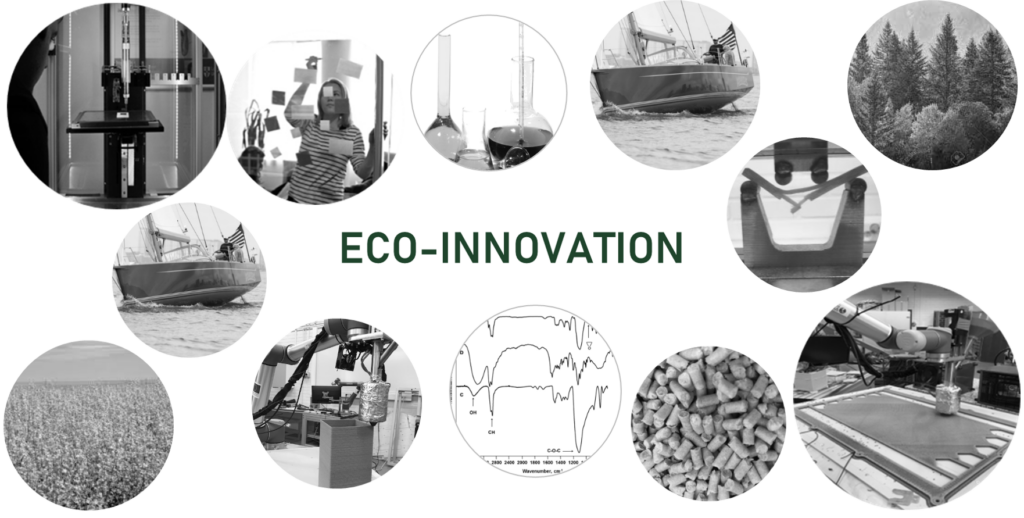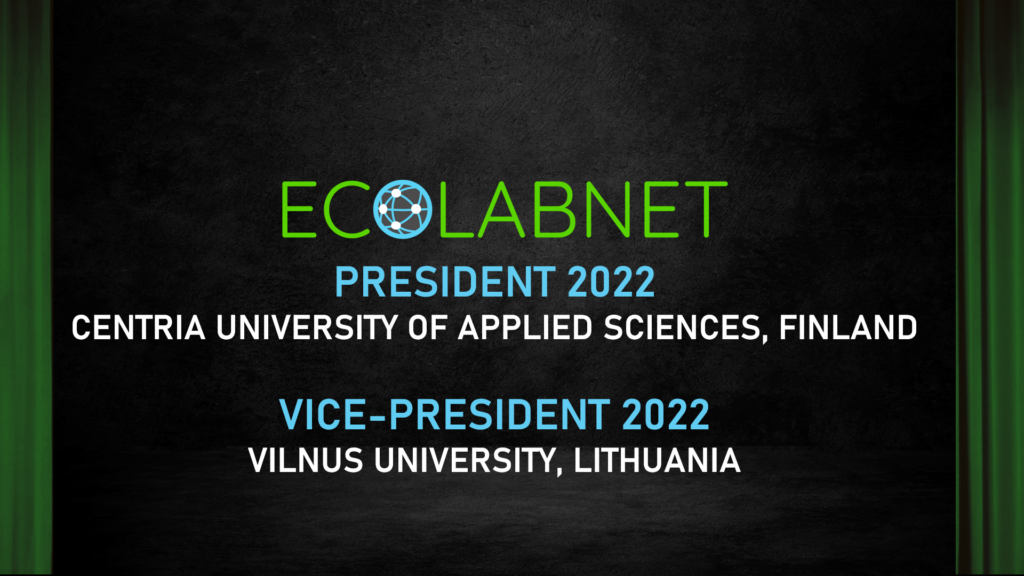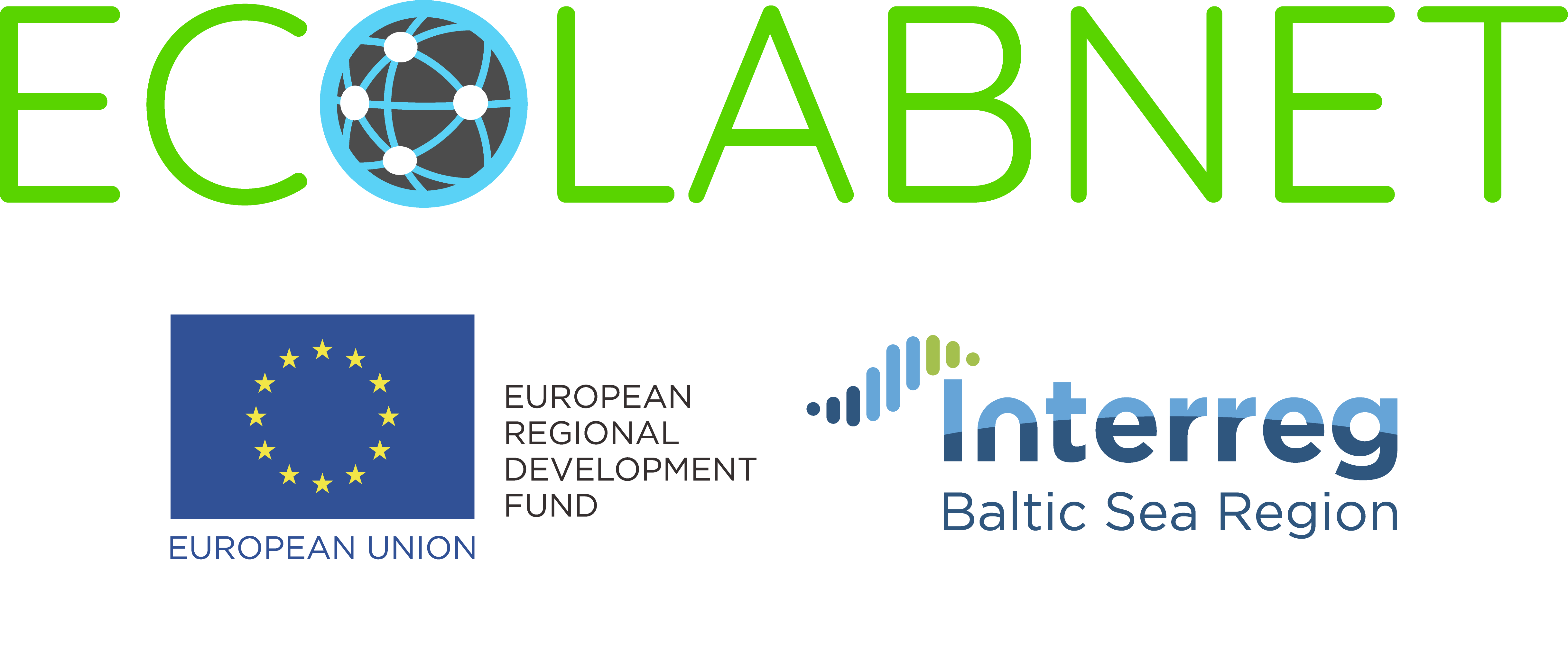Writer Miia Lammi, Vaasa University of Applied Sciences, Design Centre MUOVA
In November 16th 2021, about 140 industrial companies, RDI service providers and intermediary organisations showed their interest in eco-innovation. The online event “Open eco-innovation” exchanged knowledge and experiences and created connections for eco-innovation.
The ECOLABNET project manager Miia Lammi at VAMK Design Centre MUOVA opened the event and reminded about the new knowledge, solutions, technologies created in research, development and innovation organisations. These possibilities could be utilised more effectively in developing ecological business solutions. The need for more sustainable manufacturing is urgent which calls for closer collaboration on the European and global levels. EU is investing heavily on the green transition, so the lack of funding and political will is not an issue in eco-innovations.
Eco-innovation is a broad topic, which covers a variety of technologies, business and design aspects of new solutions. It aims at reducing the environmental impact and creating successful market uptakes. During the project, ECOLABNET focused on bio-based materials, 3D printing, product service system design, environmental assessment, circular business and branding. Together they support the value chain of eco-innovation from research of materials to designing and producing ecological products.

Collaboration for eco-innovation
In the panel discussion of the Open eco-innovation event, Hanne Biltoft at VIA University Collage, Denmark described four main motivating factors of manufacturing SMEs for eco-innovation: the satisfaction of customer needs, efficient use of resources, strengthening corporate brand image, and compliance with legislation. However, the companies lack capital and alternative materials, they are worried about the costs for certification and the return on eco-innovation investments.
Lisbeth Jensen, Associate Professor at VIA University College, Denmark explained how the manufacturing SMEs, RDI service providers and intermediary organisations can collaborate more effectively. The Intermediary organization mediate contacts and share knowledge through their networks. The research and development organizations help SMEs in ecological challenges through knowledge, research, tests, and development. The SMEs can get access to knowledge and experts through the ECOLABNET’s meeting places, where SMEs can get connected with the right experts and partners for collaborating on eco-innovation.
Deivydas Čepas, project manager at Lithuanian Business Confederation presents intermediary organisations in ECOLABNET. Čepas pointed out that eco-innovation and practical benefits are still an unclear concept to many manufacturing SME’s. However, the best practices and results could be achieved through close and trustworthy cooperation with RDI service providers or key sectoral intermediary actors in eco-innovation development. Therefore, ECOLABNET see that it is important to provide SME’s with access to relevant tools, knowledge or even expertise to promote eco-friendly manufacturing processes in close cooperation with RDI service providers and intermediary actors.
Czestochowa University of Technology from Poland was responsible for developing a digital collaboration tool, DCT for ECOLABNET. According to professor Jurand Bien, DCT is a digital meeting place, a platform where development and innovation service providers, and manufacturers can meet whether they are looking for new opportunities or just maintaining their relationships with existing partners in eco-innovation. DCT is open for anyone who is looking for information on environmentally-friendly technologies, materials, products, services, suitable expertise and structured knowledge of the effective use of human and technical resources, bio-based resources, 3D printing etc.
The future of ECOLABNET
The project ECOLABNET ends in December 2021 but ECOLABNET as a network for eco-innovation continues. ECOLABNET will have a president and vice-president who will ensure the network activities. An online meeting place will take place yearly, every November. The meeting place introduces new knowledge and collaboration as well as examples of eco-innovation. In addition, ECOLABNET discusses and shares news in the Linkedin group. Digital collaboration tool offers easy access to RDI service providers and support organisations. ECOLABNET aims to create high value for its members and collaboration partners for free.
In the event, the president and vice president 2022 of ECOLABNET were announced. Centria University of Applied Sciences from Finland will act as the president of ECOLABNET in 2022 and Vilnus University will be the vice-president 2022 and the president 2023. RDI manager Egidija Rainosalo at Centria and Professor Mangirdas Malinauskas at Vilnus University expects to have inspiring and efficient eco-innovation year 2022 and welcomed new members and collaboration partners to ECOLABNET.

